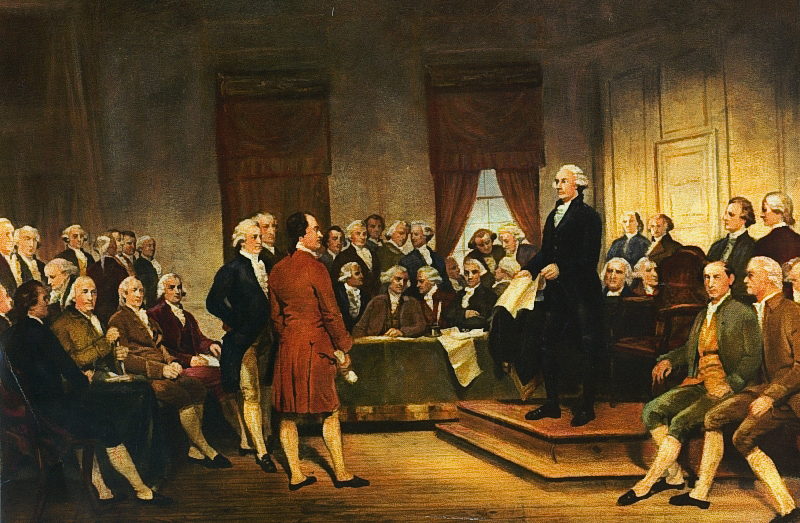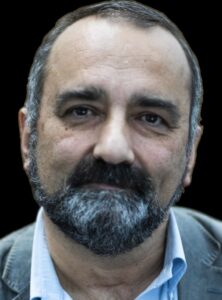We have strangely detached notions of our rights from our responsibilities. Many are quick to posit that we have a wide range of rights, yet we are almost tongue-tied about our responsibilities. It may be interesting and worthwhile to explore whether this division is viable.
At first glance, our myopia is not challenged—and may even be reinforced—by foundational texts. The American Declaration of Independence (1776) was the first to herald that we were all endowed with certain unalienable rights. The 1948 Universal Declaration of Human Rights (UDHR) starts out, in its Preamble, by recognizing the “inalienable rights of all members of the human family.” The word responsibility does not appear anywhere in either Declaration. Incidentally, the same is also true for the French Declaration of 1789.
Yet if we had to imagine categories of people who have rights but not responsibilities, only infants and the most absolutist of all rulers would meet the criteria. No one would dispute that infants have rights but cannot conceivably bear meaningful responsibility. Absolutist rulers, on the other hand, have rights in the sense of licenses, but no—or very negligible—responsibilities. Given that both of these groups form a fraction of human populations, and that we do not fancy being infantilized or seeking dictatorial roles, why are we so muted on the relationship of rights to responsibilities and vice versa?
If we were to take the idea of responsibility seriously, we could, for example, look into its etymology. The etymology of responsibility points to respondere in Latin, literally “to be bound to answer.” Several other languages including Arabic, Chinese, French, Indonesian, Italian, Persian, Russian, Swahili, Turkish, Urdu, have the same etymology for responsibility. It would seem that many cultures evolved to conceptualize and narrate responsibility essentially as owing an answer to our peers.
We may also recall that the founders of two twentieth-century republics, India and Turkey, put responsibility front and center for their undertakings. Gandhi often maintained that no one can claim a right without fulfilling a corresponding responsibility, and that a claimed right without assumed responsibility is not a right at all, but a form of moral trespass. Atatürk wrote in a 1931 foundational book on civics, Civil Information for Citizens, that the founders and the real owners of the republic were free and responsible citizens. When the Ottoman citizens found a peace treaty signed by the Sultan at the end of World War I unsatisfactory, cities and towns of any substance spontaneously held civic conventions, formed militias, imposed levies, and donated arms to a national armed force. They were responsible because they were—and wanted to stay—free, and were free because they were—and continued to be—responsible. A few years later, their efforts culminated in a new, independent republic. One person, who, I imagine, would have agreed with Ataturk and Gandi on responsibility being endemic to rights, would be Edmund Burke.
When I was growing up, Isaac Asimov was treated as something of a genius. He published a short book in 1954, The Immortal Bard, where Shakespeare time travels to the twentieth century and takes a college course on Shakespeare, only to fail the course. The standard interpretation of the plot in The Immortal Bard was that twentieth-century college understanding was at fault not to appreciate the original genius. Yet, what if the twentieth century had a better, deeper understanding of the sixteenth-century genius than the genius himself?
We could test this legerdemain and go back to our two Declarations with, in a manner of speaking, Gandhian or Atatürkist lenses. That re-reading could indeed reveal some interesting features: The 1776 Declaration does two things: It professes “a decent respect to the opinions of mankind” and therefore addresses “a candid world” by submitting facts and testimonials. As such, it treats the rest of the world as a peer, and expects and hopes its respect, goodwill, and willingness to bear witness to the righteousness of the American cause. It assumes that the rest of humanity has—and feels that it has—a responsibility to bear witness. It also ends with the signatories mutually “pledging to each other their lives, fortunes, and sacred honor.” The pledge has all the trappings of the legendary Camelot motto: In serving each other we become free. Could that also mean that only through heeding and serving each other, we become and remain free?
The 1948 Declaration points, in its First Article, to the conscience that every human being possesses, and the imperative to act towards one another in a spirit of brotherhood. Conscience is another term with an interesting and telling etymology: Not only in English but also in Dutch, French, German, Italian, Russian, Spanish and Swedish, conscience (con+science) means “knowing together.” In other words, conscience is what we cannot not know when we live, experience, and perceive together as peers; it emerges as a binding norm because we knew together and we cannot un-know alone. Article 28 of the UDHR is about our entitlement to a social order where our rights and freedoms can be fully realized. Article 29 describes the community as the thing in which alone the free and full development of our personality—and presumably our conscience—is possible. Could it be that both Declarations and the mindset underlying them were pregnant with an understanding of the critical role of responsibility and simply not explicit about it? This new lens may also affirm John Adams, one of the founding fathers, who noted that the American constitution was designed exclusively for a virtuous people and would be holy inadequate for a people that is not virtuous, which would presumably be negligent or indifferent to responsibilities.
The Indian sage Tagore is said to have argued that “The one who plants trees, knowing that he will never sit in their shade, has started to understand the meaning of life.” The elderly planting trees or more precisely contributing and growing the commons makes sense if we are to understand our own existence as a process, at the beginning of which we are dependent—and indebted—to those older than us for care and affection, as well as various commons built and maintained before us. We pay back that debt not necessarily to those who cared for us but to those who are younger than us by planting trees whose shade we know we will not enjoy.
Is this not, in an important sense, what Benjamin Franklin did? With little effort, we should be able to recall that Franklin was solicited to help a compatriot in dire straits, Benjamin Webb. Franklin reportedly pondered the request for a couple of days and sent Webb the requested amount along with a letter specifying that the enclosed check was not a grant, but a loan. The repayment of the loan was not to be directed to Franklin, but to a compatriot who might be in a similar duress and under the same rules of paying it forward. Franklin, as we may recall, was also the inventor of the lending library as a place to not only store but loan books. In both cases, Franklin was making the work of actively maintaining a web of responsibility and trust a key feature of the new American society. He, like John Adam, seems to have had faith in the virtue of his compatriots.
There are, to be sure, pessimistic diagnoses about how that republic fared. Patrick Deneen, author of Why Liberalism Failed, argues that our liberal or modern age has ruthlessly drawn down on an inheritance of mutual responsibility, that is our vast natural and social resources, and is incapable of replenishing them. He describes an unwillingness to have any gratitude for the past and any obligations regarding to the future as part and parcel of that self-maximizing, shallow, and hedonist worldview. Robert Putnam of Harvard has also argued that the US has misdiagnosed the sources of its strength and ended up cannibalizing what really made it great. It is difficult to deny that Deneen and Putnam are not at least partially right.
The question, then, is what form the needed corrective may take. We are not and cannot be merely transactional beings. Rights without responsibilities ought to be viewed as liberty without camaraderie, reach without grasp, competence without comprehension: an unwise and unsustainable gluttonous temptation which should be resisted and loathed. The next question is whether we have enough occasions or habits to feel our community and interdependence and discover the poverty of the transactional mode.
If we are first and foremost rights bearing agents, it is to be expected that our main mode is a vigorous claiming of our rights as well as their adversarial defense. Yet, if we subscribe to the view that rights and responsibilities are in an iterative and virtuous relationship, then listening well is as important as—if not more important than—speaking. It is through listening generously that we heed our peers in fellowship. Listening well may be an important way we replenish the depleted reservoirs of our social wellbeing such as trust, camaraderie, and community. We have spent many decades honing our public speaking, presentation, and advocacy skills. Yet the Buddhist sage Thich Nhat Nanh observes that while we never had so many means of communication as we do right now, we have failed to cultivate the art and the skill of listening at all and are therefore in a dangerous deficit. Maybe what we need to do is view listening well as a social and civic muscle that has atrophied. Several traditions, including the Benedictine order and Muslim Sufis, have described listening well as “listening with your heart’s ear.” We can assume this phrasing is meant to remind us that listening is not an automatic affair conducted by our ears but has an important intentional component: Are we listening to respond swiftly and maybe prematurely, or are we listening to understand our fellow human beings? Others have argued that listening is an act of love. Can we, for example, start by listening to one new person generously each month? We might even enjoy this new habit and seamlessly tone our listening muscle into health.
Could it be that the natural manure to refresh and replenish the tree of liberty is not blood but more responsibility, informed by generous listening and animated by agape? As Peter Levine notes, it may just be that we are the people we have been waiting for. There are no others.





